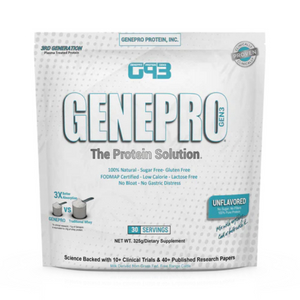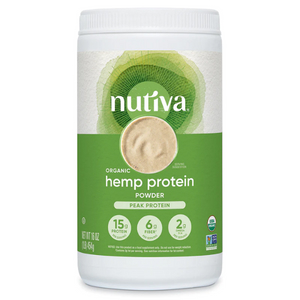 Expert's opinion
Expert's opinion
The article is a subjective view on this topic written by writers specializing in medical writing.
It may reflect on a personal journey surrounding struggles with an illness or medical condition, involve product comparisons, diet considerations, or other health-related opinions.
Although the view is entirely that of the writer, it is based on academic experiences and scientific research they have conducted; it is fact-checked by a team of degreed medical experts, and validated by sources attached to the article.
The numbers in parenthesis (1,2,3) will take you to clickable links to related scientific papers.
Best Low Sodium Protein Powder 2024: Reviews & Buyer’s Guide
All articles are produced independently. When you click our links for purchasing products, we earn an affiliate commission. Learn more about how we earn revenue by reading our advertise disclaimer.
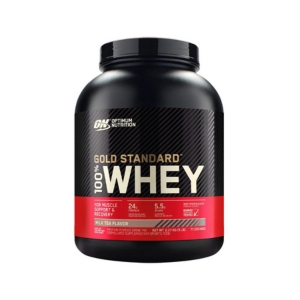
Optimum Nutrition Gold Standard 100% Natural Whey
- Gluten-free
- Post-workout protein powder
- Negligible sodium content
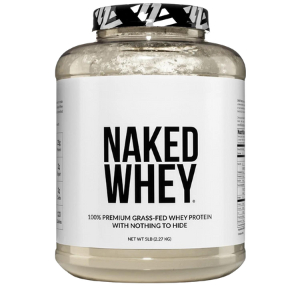
Naked Whey Grass Fed Protein Powder
- Grass-fed whey proteins
- Devoid of growth hormones
- Negligible sodium content
15% Off Coupon: HEALTHCANAL
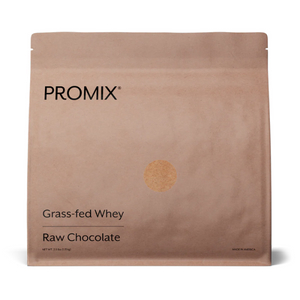
ProMix Whey Protein Powder
- Grass-fed whey concentrate
- Soy and gluten-free
- Massive muscle volume gains
There are so many protein supplements available in numerous stores. A report by the Clean Label Project states that these protein powders may contain certain dangerous heavy metals, plastics, and pesticides.
With such discoveries becoming common practice, the entire dietary supplement industry is on high alert. Manufacturers are now taking stringent steps and procedures to make the best products with clean labels.
Among the many ingredients put in the spotlight is sodium. Sodium is vital for blood volume, water-mineral balance, nerves, and muscles. But in high amounts,[1] it may be detrimental to your cardiovascular health.
This piece will highlight five of the best brands that offer low-sodium protein powders that athletes and gymgoers may use without worrying about the high sodium risks. Read on to learn more about the best five.
5 Best Low Sodium Protein Shakes In (April. 2024)
- Optimum Nutrition Gold Standard 100% Natural Whey – Editor’s Choice
- Naked Whey Grass-Fed Protein Powder – Best Grass-Fed Whey Protein Powder
- ProMix Whey Protein Powder – Best For Muscle Building And Recovery
- GENEPRO G3 Unflavored Protein Powder – Best Lactose-Free Protein Powder
- Nutiva Organic Hemp Seed Protein – Best Sodium-Free Protein Powder
Best Low Sodium Protein Powders In 2024
Optimum Nutrition Gold Standard 100% Natural Whey
Optimum Nutrition has more than ten varieties, but the vanilla whey isolate protein powder is the one we’re showcasing today because of its low sodium.
- A post-workout supplement
- Devoid of artificial sweeteners and sugars
- Supports muscle growth and recovery
- The other flavored whey proteins contain higher sodium counts
A single scoop of the vanilla flavor has 24 g of protein content, 5 g of carbs, 4 g of sugar, and 1 g of fat in addition to 55 mg of sodium. Additionally, each serving has 5.5 g of naturally occurring branched-chain amino acids (BCAAs) to support stamina and recovery.
Add one scoop to 6 to 8 ounces of cool water or milk. Swirl, stir, or use a blender for 30 seconds for a completely dissolved powder. Prepare your shake between 30 and 60 minutes after working out for the optimum effects, or include it as a healthy snack, ensuring that you also stick to a low-sodium diet.
This brand, hands down, produces the best-tasting protein powders in the market because of their wide variety. However, if you are sticking to a strict low-sodium diet, you are better off sticking to the vanilla. Regardless, they all have a clean label and are free of banned substances.
If you are unsatisfied with the product, the brand allows the supplement to be returned 30 days after the date of purchase. The refund is only applicable if the supplement was not used beyond the 75% mark.
Naked Whey Grass Fed Protein Powder

15% Off Coupon: HEALTHCANAL
At only 45 mg per serving, the Naked Whey Grass Fed Protein Powder may be ideal for people predisposed to heart or kidney disease.
- Supports heart health
- Uses the cold press method for extraction
- Is Informed-Choice Trusted By Sport
- Expensive
This low sodium concentration of 45 mg is the lowest sodium content so far on this list. Excess sodium is harmful to the heart and the kidneys, so this protein powder would be the healthiest and safest. This protein powder is manufactured using whey protein sources derived from Northern California and Idaho dairy farms, which are home to the healthiest grass-fed cows.
In addition to this, it provides a generous helping that, measure-for-measure, contains low calories, clocking in at 120, along with only 2 grams (g) of fat and 25 g of protein. But that is not the end of it.
Additionally, it has added nutrients, including a full profile of amino acids, which is beneficial for developing and maintaining lean muscle mass. While it contains so little sodium, this single-ingredient organic protein powder also strengthens your immune system, helps you lose weight, improves your cardiovascular health, and promotes overall wellness.
ProMix Whey Protein Powder
The ProMix brand has six flavors of high-quality whey powder proteins. This review highlights the Raw Chocolate flavor with a low sodium count of 120 g, although every flavor has the same low-sodium content.
- Soy-free and gluten-free
- Made of grass-fed whey concentrate
- Third-party tested
- Devoid of GMOs, hormones, and antibiotics
- Not suitable for lactose-intolerant people
ProMIX is the best low-sodium protein powder brand for professional athletes and fitness enthusiasts who follow a gluten-free, soy-free diet.
With 25 g of high-quality whey protein concentrate and 120 mg of sodium per dose in ProMix, you may increase your energy and build muscle mass without running the danger of side effects from too much sodium or growth hormones.
Most users appreciate that this low-sodium protein powder is made entirely of whey protein concentrate because this offers a lot of protein for enduring lengthier exercises.
A serving of this Raw Chocolate flavor has 120 mg of sodium, 155 calories, 25 g of protein, 3 g of fat, and 8 g of total carbohydrates. The brand offers a 90-day guarantee, and if, within this time, this low-fat and low-sodium does not work for you, you get a full refund.
GENEPRO G3 Unflavored Protein Powder
One of the most significant issues with starting on protein powder is stomach upset, and this is something that the GENERO Organic Protein Powder promises you will not experience.
- Low-calorie
- Sugar-free and lactose-free
- FODMAP-certified
- Can be consumed in multiple ways
- Has a low protein content, unlike most protein powders
It seems like the farther we go down this list of low-sodium protein supplements, the lower its sodium content. As such, this one has only 20 mg of sodium, making it the best in regard to low sodium content.
Besides the low-sodium quantity, this high-quality protein powder is also low-calorie, lactose-free, carbohydrate-free, and fat-free. For this reason, it is ideal for someone on a weight loss journey and on a low-sodium diet, too. It is one of the best low-sodium protein shakes for weight loss.
It is devoid of any artificial additives. However, the protein content is a bit low at 11 g compared to most protein powders which typically have proteins above 20 g or higher. It is an excellent supplement for weight and mass maintenance but not for individuals looking to gain muscle mass.
The brand purports that this is a complete protein supplement with a high absorbability at 99.99% without causing stomach upsets and discomfort. It is flavorless, meaning you can add it to any food or drink without altering the taste.
Nutiva Organic Hemp Seed Protein
As the only plant-based protein powder on our list, this one is entirely sodium-free. It is a hemp protein powder low in calories, fat, cholesterol, and sugar, making it ideal for people watching their weight.
- Sodium-free
- Made from hemp proteins
- Vegan
- Not the best-tasting protein powder
As was just discussed, the sodium content of this low-sodium supplement list drops to lower levels as we move farther down the list. This one in question contains no sodium at all! This plant-based protein is obtained from hemp seeds grown in an environmentally responsible manner. One serving of this plant-based protein has 15 g of protein in addition to 6 g of dietary fiber. It is low in carbohydrates and lipids and is salt- and cholesterol-free.
Even though it is not the protein powder with the nicest flavor available on the market, at least you can be confident that you are meeting your recommended daily protein intake with it.
The maker of this low-sodium plant-based protein powder claims that cold pressing is a technique that is employed during the production process. All of the essential nutrients are retained in the finished product thanks to this technique. They make use of a BPA-free container.
Why Should We Take Low Sodium Protein Drinks?
Sodium’s adverse effects may also extend to the kidneys and the brain. Athletes and other fitness enthusiasts looking to build muscle, lose weight, or reach any fitness goal should be careful and consume low-sodium protein drinks, pills, and powders.
A low-sodium protein powder is still nutritious, offering the body ample protein intake filled with essential amino acids and branched-chain amino acids for muscle development. Since you are getting all the benefits with a protein powder, you might as well switch to the best low-sodium protein product.
Determining The Amount Of Sodium In Protein Powders
You are advised to take only 2,300 milligrams (mg) of sodium daily. And since salt is in most food items that we consume (especially processed foods), your protein powder should have a negligible amount to avoid offsetting the salt balance in the body. If you are not careful, you may find your diet has excess sodium.
You should always examine the sodium content of the protein supplement by reading its nutrition label. The Nutrition Facts on the container is the simplest way to determine the salt content of protein powders.
The amount is frequently specified in milligrams, and most low-sodium proteins have a quantity of approximately 120 mg. To avoid confusion, look for terms like “sodium,” “salt,” or “soda,” since they all refer to the salt quantity in that protein supplement.
Choosing The Best Low-Sodium Protein Powder
These five low-sodium protein powders have barely scratched the surface of what is in the current market. That said, how does one land on the best protein powder low-sodium supplement?
Here is a brief description of what you need to find the best.
The Sodium Content
To check the sodium content, always refer to the nutrition facts on the container.
The amount acknowledged by the Food and Drugs Administration (FDA) as low sodium is 140 mg[2] per serving and below. Looking at the products on our list, we see that all five supplements adhere to this range. In our selection, Nutiva Organic Hemp Seed Protein had the lowest quantity at 0, and ProMix Nutrition Grass had the highest at 120 mg.
Despite the big difference between the two, according to the FDA, they are categorized on the low-sodium list. Regardless, comparing the two, you may feel ProMix Nutrition Grass has too much sodium. So if you are to go with the healthiest brand, sodium-wise, you better go with the zero sodium one.
Type Of Sodium
Additional content of sodium may increase the sodium intake. These are
- Monosodium glutamate
- Sodium chloride
- Sodium benzoate
The Taste
Many protein powders come in various essences and flavors that appeal to different people. So, when it comes to finding a good-tasting protein powder, the selection is very subjective according to who is selecting it.
Some people appreciate bland tastes and go for the unflavored kinds. At the same time, there is a sweet tooth group that will go for the sweet strawberry or caramel flavors.
Your Goals
You should also include your goals since each of these five brands has a proprietary blend. For instance, if you are aiming for muscle gains, do not use a zero-sodium protein powder with low protein content; it would be better to go with a higher sodium content with high protein for that goal.
The balance of protein vs sodium, as well as calories, would differ when someone aims to lose weight. They would go for a low-calorie, low-fat, and moderate-to-high protein content. So, set a goal, then choose the low-sodium protein powder whose other properties align with it.
Also, consider the type of protein. Some examples are whey isolate, pea protein, sunflower protein, hemp protein, and creatine. See your physician for the best kind to use for your physiology.
Your Diet
Your diet also significantly contributes to the kind of low-sodium supplement you buy. The four most determining diets, in selecting the best low-sodium protein powders, are vegan, paleo, keto, and kosher. In these diets, certain dietary restrictions may not allow the dieters to use any protein powder.
Of the four, vegans have the most significant influence. Veganism does not allow the consumption of any meat or meat products. So a vegan would seek a fully organic vegan protein powder. When it comes to kosher, a certificate on the package is enough.
Extra Ingredients
When seeking any dietary supplement, checking the additional ingredients is a must. Also, always check if they are used in their naturally occurring form or if they are synthetic. In science, specific components may improve the activity of another, while others might clash. That said, you need to do ample research on the ingredients on the label and their interactions.
For instance, check how citric acid or stevia leaf extract interacts with sodium. Also, check the benefits you’re choosing for your body. If they are adding value, then it’s okay.
Final Thought
Not all protein powders are made the same. Every formula has its perks, typically the supplement’s selling point. This piece highlighted low-sodium protein powders and highlighted five of the best in the market.
Sodium intake is just as crucial as protein, carbs, or healthy fats intake; and curbing sodium is just as crucial as curbing sugars. While most times we get ample of both from food, we may unknowingly find ourselves consuming more through protein powders high in sodium. This is dangerous if you have any issues or predisposition to heart or kidney disease, as too much sodium aggravates your blood pressure and can impact both.
As a solution, use one of these five low-sodium protein powders to stay on track with your fitness goals. Consult with your dietitian before using the supplement.
Frequently Asked Questions
From our list, the protein powder with the least amount of sodium is Nutiva Organic Hemp
Seed Protein with zero sodium content.
Some brands are zero sodium, like Nutiva Organic Hemp Seed Protein.
Different protein powders have varying sodium contents, pea protein being the highest and whey and rice protein among the lowest.
A daily protein shake surpassing 2,300 mg of sodium or more is regarded as excessive.
Yes, it is. It is high due to its processing, which entails using a salt bath to balance the protein’s pH. It retains all the excess.
+ 2 sources
Health Canal avoids using tertiary references. We have strict sourcing guidelines and rely on peer-reviewed studies, academic researches from medical associations and institutions. To ensure the accuracy of articles in Health Canal, you can read more about the editorial process here
- CDC (2023). Sodium Intake and Health . [online] Centers for Disease Control and Prevention. Available at: https://www.cdc.gov/salt/index.htm.
- Center (2022). Sodium in Your Diet. [online] U.S. Food and Drug Administration. Available at: https://www.fda.gov/food/nutrition-education-resources-materials/sodium-your-diet.

